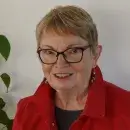
Sally Gregory Kohlstedt
Sally Gregory Kohlstedt, Professor Emerita of History of Science and Technology at the University of Minnesota-Twin Cities, specializes in the history of the natural sciences, the influence of scientific institutions, and the dynamics of gender in scientific practice. Throughout her career, she has led programs and conferences relating to women’s and feminist studies and served in multiple editorial advisory roles with presses and journals.
Her early publications explored the nineteenth century intellectual and cultural framework that underpinned the rapid and perhaps unexpected development of science and technology in the maturing United States. The research demonstrated how American scientists established communities to facilitate their intellectual projects in a democratic society and, in turn, made science a cultural value through formal and informal education. Uncovering the ubiquity of women’s participation led Kohlstedt to publish on their significant but often-invisible contributions, with attention to the gender dynamics that shaped their scientific work
She is author of The Formation of the Scientific Community (University of Illinois Press) and co-authored editions, including Science in the American Century (University of Chicago Press) with David Kaiser; Women, Gender and Science: New Directions (University of Chicago Press) with Helen Longino; and Historical Writing on American Science (University of Chicago Press) with Margaret Rossiter. Kohlstedt’s book Teaching Children Science: Hands-On Nature Study in North America (University of Chicago Press) won the History of Science Society’s Rossiter Prize. She has published essays and articles in multiple edited books and in Isis, Science, Journal of the History of Biology, Museum History Journal, Signs, Historical Records of Australian Science, and Osiris.
In 2019, she was given the Sarton Medal, an award given annually to an outstanding historian of science. She engaged actively in national professional organizations, serving in multiple roles, perhaps most notably as President of the History of Science Society as well as Board member of the American Association for the Advancement of Sciences, where she subsequently chaired its committee on Science, Ethics, and Religion.
She has an undergraduate degree from Valparaiso University and a Ph.D. from the University of Illinois Urbana-Champaign.